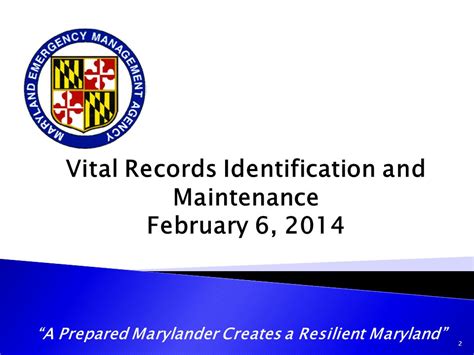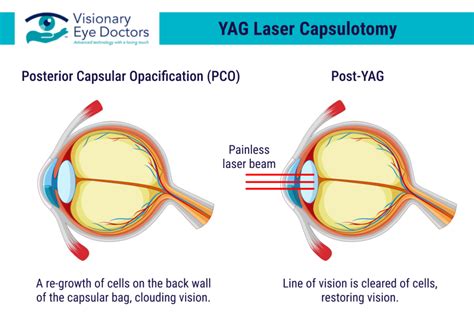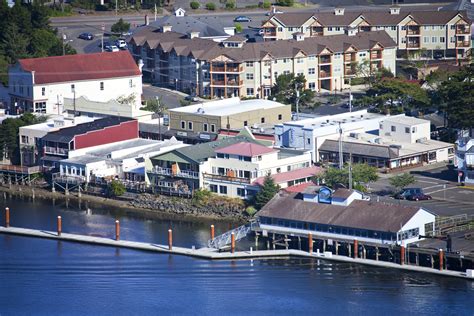Maryland Vital Records Access

Access to vital records in Maryland is a complex process, governed by a mix of state laws and federal regulations. For individuals seeking to obtain birth, death, marriage, or divorce records, understanding the nuances of these laws is crucial. The Maryland Department of Health (MDH) and the Vital Statistics Administration (VSA) are responsible for maintaining and issuing these vital records, but the process can vary depending on the type of record, the reason for the request, and the relationship of the requester to the person whose record is being sought.
Historical Context of Vital Records in Maryland
Maryland has been collecting and maintaining vital records for centuries, with the first recorded vital events dating back to the early colonial period. However, it wasn’t until the late 19th century that the state began to systematically collect and store these records. The creation of the Vital Statistics Administration in the 20th century marked a significant milestone in the management of vital records, as it centralized the collection, storage, and dissemination of these documents.
Types of Vital Records
Birth Records: These documents are perhaps the most frequently requested vital records. They are essential for identity verification, passport applications, and social security benefits, among other purposes. In Maryland, birth records are available from 1875 to the present, though the completeness and detail of the records can vary by time period and location.
Death Records: Death certificates are crucial for estate settlement, insurance claims, and genealogical research. They contain information about the deceased, the cause of death, and, in some cases, the burial location. Access to death records in Maryland is generally less restricted than for birth records, but there are still specific guidelines that govern who can obtain these documents.
Marriage Records: Marriage licenses and certificates are maintained by the clerk of the circuit court in the county where the marriage took place. These records are important for verifying marital status, inheritance, and other legal purposes. The availability of these records can depend on the year of the marriage and the specific county.
Divorce Records: Like marriage records, divorce decrees and related documents are typically held by the circuit court clerk in the county where the divorce was granted. Access to these records can be more restricted due to the sensitive nature of the information they contain.
Accessing Vital Records in Maryland
The process of accessing vital records in Maryland involves several steps, including determining the type of record needed, identifying the appropriate authority to contact, and providing the necessary information and documentation to support the request.
For birth and death records, individuals can submit requests to the Maryland Vital Statistics Administration. The VSA requires applicants to provide specific information, such as the full name of the person on the record, the date and place of the event (birth or death), and the relationship of the applicant to the person on the record. Fees apply for certified copies, and the VSA offers online, mail, and in-person request options.
Marriage and divorce records can be obtained from the circuit court clerk’s office in the county where the event occurred. The process and fees vary by county, so it’s essential to contact the specific clerk’s office for detailed instructions.
Eligibility to Access Records
Eligibility to access vital records in Maryland depends on the type of record and the relationship of the requester to the person on the record. Generally, immediate family members (parents, spouses, children, siblings) and legal representatives have easier access to these records. Others may need to provide additional documentation or justification for their request.
Challenges and Considerations
Despite the importance of vital records, accessing them can be challenging due to privacy laws, bureaucratic processes, and the condition of historical records. The Maryland Department of Health and local courts are continually working to improve access and digitize records, making the process smoother for those in need. However, individuals should be prepared for potential delays and should plan accordingly, especially if they are requesting records for time-sensitive purposes such as travel or legal proceedings.
Future of Vital Records Access in Maryland
The future of vital records access in Maryland is likely to involve increased digitization and online accessibility. The state has already taken steps in this direction with online portals for ordering records and digital archives of historical records. However, balancing accessibility with privacy and security concerns will remain a challenge. As technology advances and societal needs evolve, Maryland’s approach to vital records management will likely adapt, offering a model for other states in the process.
Conclusion
Accessing vital records in Maryland requires a understanding of the state’s laws and procedures. Whether for personal, legal, or research purposes, navigating the system effectively can save time and frustration. As the state continues to update its methods for storing and disseminating vital records, it’s essential for individuals to stay informed about the latest developments and requirements.
How do I obtain a birth certificate in Maryland if I am not an immediate family member?
+To obtain a birth certificate in Maryland as a non-immediate family member, you will typically need to provide additional documentation or justification for your request. This could include a court order, if the record is needed for legal purposes, or a notarized statement explaining your need for the record. Fees apply, and you should contact the Maryland Vital Statistics Administration for the most current information on the process and required documents.
Can I access historical vital records in Maryland for genealogical research?
+Yes, Maryland offers access to historical vital records for genealogical research. Many of these records, especially those from earlier centuries, are available through the Maryland State Archives or local historical societies. Some records may also be found online through genealogy websites or the state's archival collections. It's advisable to start with the Maryland State Archives for guidance on where to find specific records and how to access them.
What is the process for correcting an error on a vital record in Maryland?
+To correct an error on a vital record in Maryland, you will need to contact the issuing authority. For birth and death records, this would be the Vital Statistics Administration, while for marriage and divorce records, it would be the circuit court clerk's office in the relevant county. You will typically need to provide documentation to support the correction, such as identification or proof of the correct information. There may be a fee for amending the record, and the process can take several weeks to complete.
In conclusion, accessing vital records in Maryland involves a nuanced understanding of the state’s legal framework, the types of records available, and the procedures for obtaining them. Whether for personal, legal, or historical research purposes, navigating the system with the right information can streamline the process and ensure that individuals can access the documents they need efficiently and effectively.



